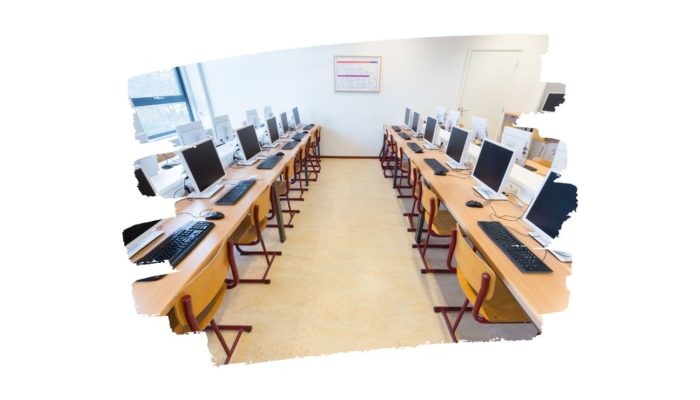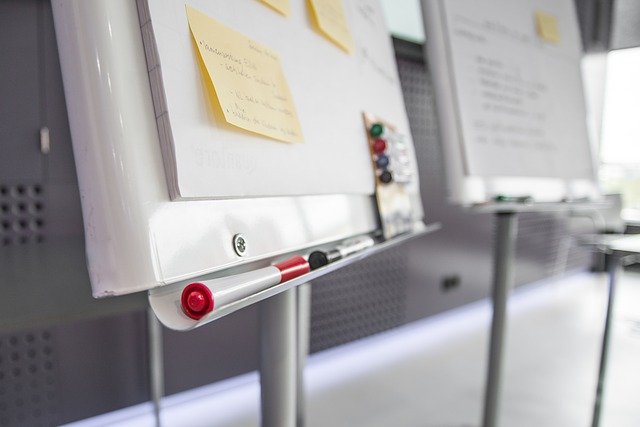Learn about the benefits of constructing a multi-year internship from a MLIS student's perspective.

If you build workshops, they still might not come: Notes on a not-so-successful community initiative
Introduction
I first heard about The Second Chance Foundation from a segment on CBC Radio’s Sunday Edition in 2017. Bev Dwyer, the founder of Second Chance, was talking about the new organization’s mission to provide a variety of supports to formerly incarcerated women in Scarborough. This interview prompted me to reach out to Bev because I knew that this was an organization I wanted to be involved in—it was grassroots with an abolitionist and feminist spirit, and it was based in Scarborough, the community that I work in and care about.
Bev and I discussed the organization’s current activities, goals for the future and what I might be able to contribute to the organization and its clients. We determined, based on her clients’ needs and my expertise, that I would offer introductory internet skills workshops focusing on information literacy to develop a practical understanding of how the internet works and critical thinking skills to navigate it. From there, I determined that I should assess the teaching and learning outcomes of the workshops and adjust for improvements over time, in order to address the needs and maximize the learning experiences of the participants and improve my teaching. I now had a research project on my hands!

Development
Many studies examining the information needs and habits of incarcerated populations suggest that limited program offerings, outdated computer software, lack of internet access and inadequate library services result in insufficient information and digital skills upon release. This can negatively affect the ability to gain employment, access community services, and build/maintain social networks, and thereby increase the risk of re-offending (For more information on this topic, these resources are a good place to start: Jewkes and Reisdorf, 2016; Office of the Correctional Investigator, 2017). By offering these internet skills workshops, I wanted to help fill in gaps in knowledge, experience and confidence using the internet.
By conducting assessment research on the workshops, I sought to examine the information needs and provide meaningful and effective means of information literacy and digital skill building for women in Scarborough who had been previously incarcerated.
I developed the workshop content as well as the assessment research project over the winter of 2017-2018, and it was approved by University of Toronto Scarborough’s Research Ethics Board. At this point, The Second Chance Foundation was operating a thrift store, but had no space of its own where the workshops could be held. So, we connected with an amazing community organization called The East Scarborough Storefront, which generously provided us with a free room and computers to use. Bev was handling outreach to her clients, sharing with them an information sheet that I had made to promote the workshops and introduce myself. In the spring of 2018 I launched the workshops as a series of three two-hour sessions on the following topics:
- Introduction to the basics of using the internet (how it works, how to find information)
- How to evaluate online information sources (CRAAP, fake news, understanding Wikipedia)
- Learning about digital privacy (passwords, location settings, browser settings)
Challenges
I offered the workshop series 12 times from May 2018 through November 2019. The biggest, most consistent challenge that I faced was attracting Second Chance clients to attend the workshops. Attendance ranged from zero to three, and sometimes people would come to one or two of the sessions, but not complete all three.
To address this attendance issue, Bev and I worked together to come up with solutions based on feedback from Second Chance clients:
- We offered a variety of times and days for the workshops since scheduling around work or family responsibilities can be challenging
- I made flyers and posters and Bev posted them on social media and at the store
- And we held in-person information sessions to introduce me and the workshop topics to clients.
In 2019, the foundation got a space of their own to host their programming. So, we also changed location to their space and really hoped that clients would be more likely to attend the workshops at this space that they were already coming to for other purposes. But none of those efforts generated more participants. Despite Bev and I working closely together to adapt and connect, despite the positive experiences of those who did attend and despite my excitement about teaching these skills and concepts, people weren’t coming. There are a number of factors that might account for why, only some of which were within mine and Bev’s scope to address.

Successes
With only nine participants in total, I was able to give very personal attention to the participants. The workshops were more like conversations than lectures or demonstrations, so there was a lot of informal assessment and feedback in addition to the formal assessment methods that I used. Although the number of participants was significantly lower than I had hoped for, those who did attend gave me positive feedback about their learning experiences. According to the pre- and post-workshop series questionnaires, most participants reported increasing comfort levels in the topics covered and all felt that the workshop instruction, activities and format were very effective. In reviewing their performance on the workshop activities, I found that participants were generally successful in the workshops on internet and searching basics and digital privacy, but they had difficulty in learning and applying the concepts for evaluating online information sources. Identifying this pattern can inform improvements to the workshops.
I was also thrilled, through a serendipitous conversation with a colleague, to source six computer donations to start a computer lab for the foundation in their new space. They have since received more computer donations and a printer from other sources, and the computer lab is an important resource for the community.
What’s Next?
My plan has always been to make my teaching and assessment materials for the workshop series freely available online, which I will do this year. It’s not groundbreaking information literacy instruction, but it could prove useful to other individuals or organizations. In light of the pandemic normalizing online learning, I am also considering adapting and recording the sessions as online workshops, but access to computers and internet for potential participants is a concern.
I would like to be able to offer them again in person in the future for Second Chance if there is more interest, or other appropriate community organizations. But, this could also be the end for these workshops, and that will be okay too, because I accomplished some teaching and some learning, and I will remain a part of the Second Chance community.
Whitney Kemble is the liaison librarian for Historical and Cultural Studies at the University of Toronto Scarborough. She has a BA in History and English from the University of Victoria, and master’s degrees in History and Information Studies from the University of Toronto. Her work and research interests include critical librarianship and prison abolition. You can catch her yelling and swearing on Twitter @redheadtalking.


